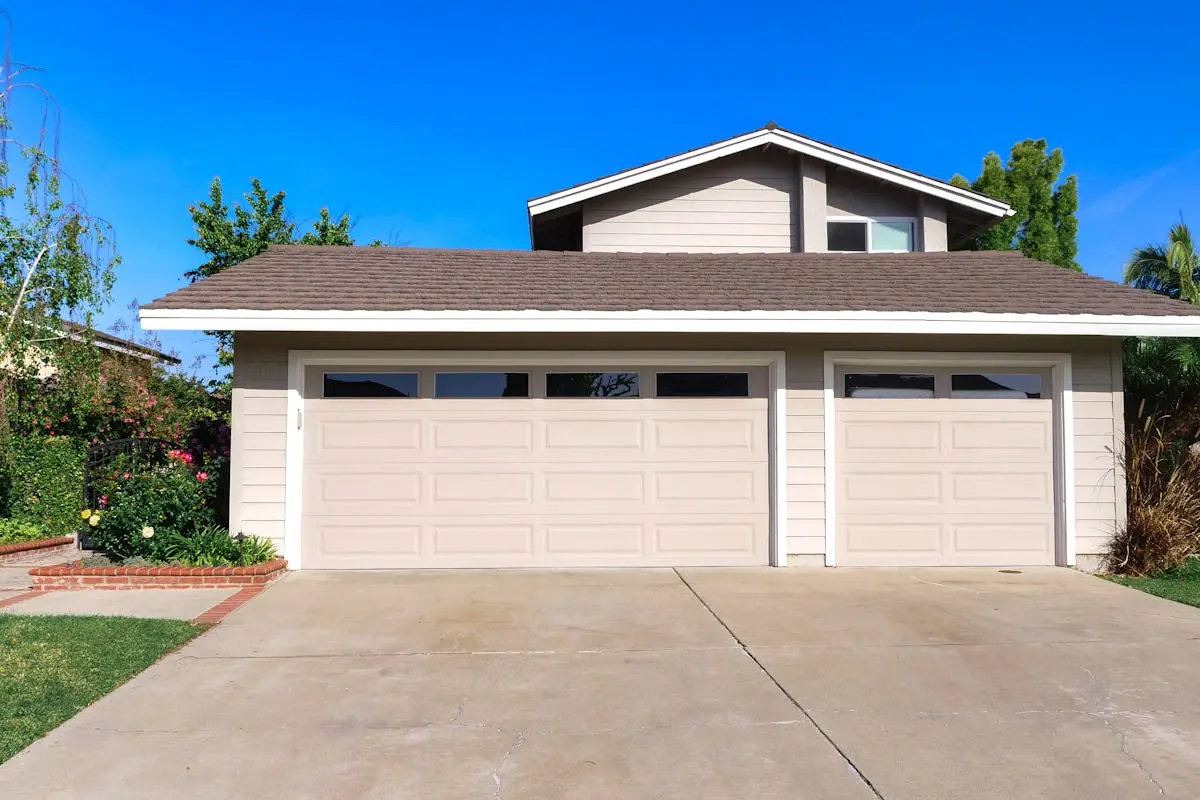Weather can have a significant impact on the functionality and longevity of your garage door. From extreme temperatures to heavy precipitation, various weather conditions can lead to wear and tear, and in some cases, more severe damage. Understanding these impacts is crucial for homeowners who wish to maintain their garage doors in optimal condition. This blog will explore the specific ways weather affects garage doors and how professional repair services can assist in addressing these issues.
How Extreme Temperatures Affect Garage Door Materials
In North Carolina, where summers bring intense heat and humidity and winters can still deliver unexpected cold snaps, your garage door’s material plays a crucial role in its durability. Wood, steel, and fiberglass each react differently to these temperature swings, which can impact functionality and lifespan.
During our hot and humid summers, wooden garage doors can expand, making them difficult to close properly. The combination of heat and moisture can also cause paint and finishes to crack, allowing humidity to seep in and accelerate wood rot. On the flip side, while North Carolina winters are generally mild, sudden cold spells can make steel garage doors more brittle, increasing the risk of dents and reducing flexibility in key components.
Fiberglass doors, though resistant to warping, are still vulnerable to our region’s strong UV exposure, which can cause them to become brittle over time. With North Carolina’s mix of coastal humidity, mountain chills, and everything in between, homeowners should carefully consider garage door materials that can withstand our state’s unpredictable climate. Regular maintenance and protective treatments can go a long way in keeping your door operating smoothly year-round.
The Role of Rain and Humidity in Garage Door Wear
Humidity and rain can lead to rust formation on metal components and encourage wood decay. This section will discuss the long-term effects of moisture exposure and how it can compromise the integrity of your garage door.
The presence of moisture creates an environment where rust can flourish, especially on steel tracks and hinges. Over time, this deterioration can affect the functionality of your garage door and lead to costly repairs. The visuals of a rusted garage door are not only unappealing, but they also signal an urgent need for maintenance.
Wooden doors exposed to constant humidity can start showing signs of rot. The fibers of the wood expand, causing cracks and splinters, while the structural integrity weakens. To avoid such issues, regular inspections and protective sealants can greatly reduce weather-related wear. Understanding how rain and humidity impact your garage door can empower homeowners to schedule regular maintenance checks.
Wind Damage: How Strong Winds Can Compromise Your Garage Door
High winds can pose a serious threat to your garage door, especially if it is not properly secured. This section will cover common wind-related damages and how to assess your door’s vulnerability to harsh weather.
One of the most common outcomes of severe winds is the misalignment of the door. When improperly secured, a garage door can be forced off its tracks, leading to mechanical failure. Regular checks of locking mechanisms can prevent such vulnerabilities and offer peace of mind during stormy weather.
Winds can act like a battering ram against your garage door if its structure is weak. If panels are damaged or hinges are rusted, the force of the wind could result in significant damage. Fortunately, repair services can implement reinforcements after assessing the door’s condition, helping to fortify it against future weather challenges.
Identifying Common Garage Door Issues Caused by Weather
Identifying problems early on can save you from more extensive repairs down the line. This section will highlight the most common weather-related issues, such as misalignment, wear on rollers, and sealant failures.
Misalignment often occurs as a result of temperature shifts and heavy precipitation, leading to gaps that can affect insulation. These spaces are not just an annoyance; they can lead to energy inefficiency and increased utility bills. Recognizing these subtle shifts in operation can prevent bigger issues in the long run.
Additionally, the wear and tear on rollers can create a noisy operation and slow movement. If your garage door hesitates or struggles to open fully, it could be a sign of weather-related wear. Homeowners should consider regular servicing, which can involve lubrication and replacement of worn parts, to ensure a smooth operation year-round.
How Professional Repair Services Address Weather-Related Garage Door Problems
Professional repair services are equipped to handle the unique challenges posed by weather on garage doors. In this section, we will discuss what to expect from a repair service, including regular maintenance and emergency repairs, and how they can help extend the lifespan of your door.
Whether it’s checking for rust, replacing worn-out rollers, or assessing the door’s alignment, repair services offer thorough evaluations that homeowners might overlook. Regular maintenance appointments can prolong the life of your garage door dramatically, providing not just functionality but also enhancing your home’s overall aesthetic appeal.
In emergencies, the speed and expertise of professional repair services become even more crucial. If your door falls off its tracks or gets stuck due to a storm, a reliable repair service can respond quickly to restore your garage’s functionality. Being proactive in seeking help can save you from a host of inconveniences when the weather becomes unpredictable.
